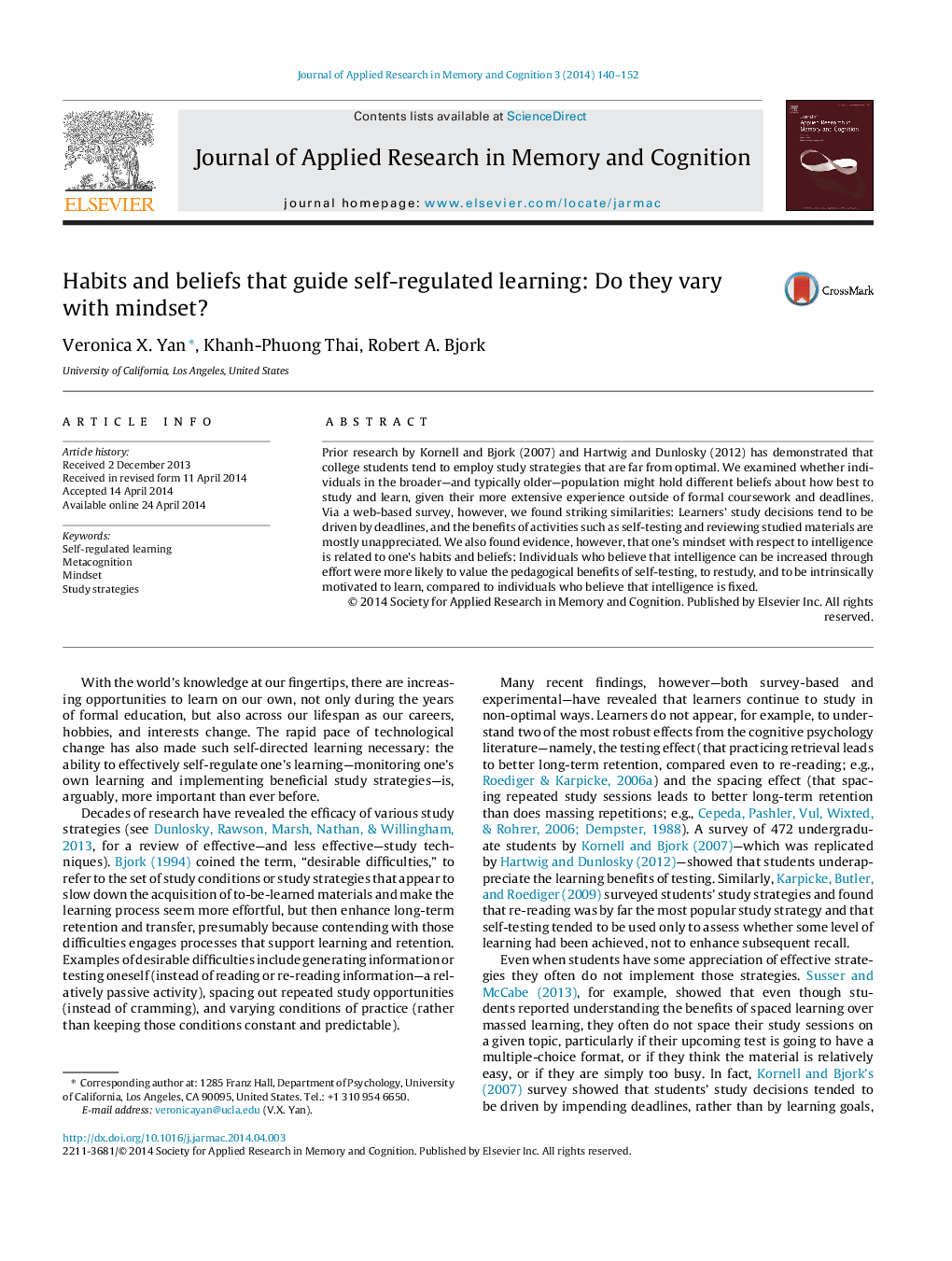| Article ID | Journal | Published Year | Pages | File Type |
|---|---|---|---|---|
| 881710 | Journal of Applied Research in Memory and Cognition | 2014 | 13 Pages |
•Our MTurk sample reported habits and metacognitive shortcomings strikingly similar to those reported by college students in prior studies.•In particular, our respondents tended not to restudy, failed to appreciate the pedagogical power of testing, and were driven by deadlines.•A growth mindset, however, was related to a greater likelihood of restudying information and appreciating the pedagogical benefits of testing.•A growth mindset, though, must be combined with knowing how to learn, including knowing that certain difficulties can be desirable.
Prior research by Kornell and Bjork (2007) and Hartwig and Dunlosky (2012) has demonstrated that college students tend to employ study strategies that are far from optimal. We examined whether individuals in the broader—and typically older—population might hold different beliefs about how best to study and learn, given their more extensive experience outside of formal coursework and deadlines. Via a web-based survey, however, we found striking similarities: Learners’ study decisions tend to be driven by deadlines, and the benefits of activities such as self-testing and reviewing studied materials are mostly unappreciated. We also found evidence, however, that one's mindset with respect to intelligence is related to one's habits and beliefs: Individuals who believe that intelligence can be increased through effort were more likely to value the pedagogical benefits of self-testing, to restudy, and to be intrinsically motivated to learn, compared to individuals who believe that intelligence is fixed.
